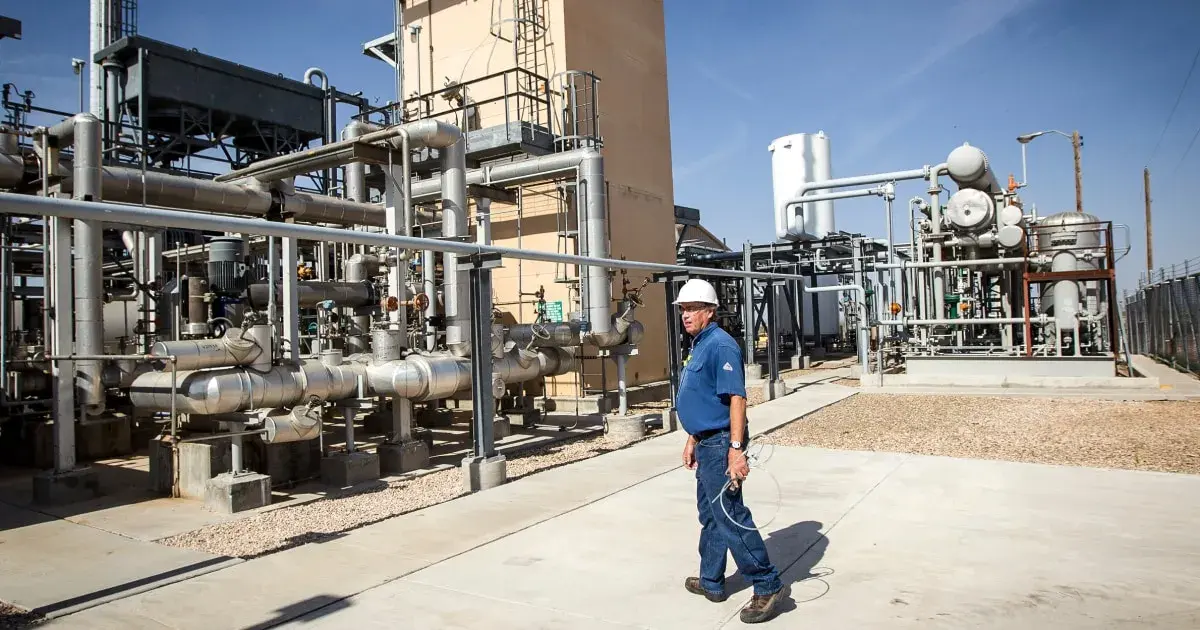- cross-posted to:
- news@lemmy.world
- cross-posted to:
- news@lemmy.world
One relevant part that I couldn’t really find in the article is that helium is so light that it escapes Earth’s atmosphere when released into the air.
So any helium that is released to the air is permanently gone.
There is also no known way to synthesize helium, and it also doesn’t renew itself at all on Earth.
It’s also the only substance we have to cool stuff really far down. That’s why e.g. MRIs depend on it.
And we put this precious, finite and often life saving substance into kids’ balloons to make them bobble nicely through the air.
We could recover a lot more helium from natural gas production (some fields contain a lot) but right now it’s vented because it doesn’t have enough value for the operators. Only a few places worldwide bother recovering it during refinement.
But as it gets scarcer the price will go up. Unfortunately the already vented helium is gone forever 😔
deleted by creator
Stuff only becomes valuable when it’s mostly gone…
We don’t know any economical way to synthesise helium. Nuclear fusion exists.
Not in a way that could be scaled up to even cover the childrens birthday parties of a medium sized city.
You underestimate the power of AI on the blockchain! Web4 will solve our helium shortage.
Quick! Somebody get this guy some grant money!!
It does somewhat renew itself due to alpha decay, but that probably isn’t fast enough to matter.
from the wiki article on Helium:
an estimated 3000 metric tons of helium are generated per year throughout the lithosphere.
I think the main issue here is not that we are loosing helium on a planetary scale but that the easy to reach helium from gas wells is wasted. We will never run out of helium at our current rate of consumption before the sun goes nova, if we consider all sources on earth, but it will get a lot more expensive and the supply will get less steady.
But we are consuming about 6 million tons per year (https://www.chemanalyst.com/industry-report/helium-gas-market-578).
The 3000 tons are just a drop in the water and it’s pretty much impossible to get to all that.
oh i must have missed a few orders of magnitude there. 6Mt of helium is a ridiculous amount though … what is all that used for? according to WA that is about the water volume of the three gorges dam at STP
Edit: just read the report, wow, more than a quarter of all the helium is used just for “breathing mixes” which i assume means its for scuba diving.
There’s quite a large amount of the usage which could be labelled “for fun”.
Hydrogen fusion plants would produce helium in the reaction, which would need to be constantly filtered out.
Would be nice if that was the reason.
But not nearly the required amounts. We currently use about 6 million metric tons of helium per year.
If fusion plants ever become a commercially viable thing (and that’s a big if), they will never be able to supply anything close to that.
According to this, the anual production is 160 million cubic meters, which at a density of 0.166kg/m³ would be over 26 million metric tons of helium per year.
https://www.statista.com/statistics/925214/helium-production-worldwide-by-country/
If we currently only use 6, that’s 20 too many being produced. It would also seem like China is 95% dependent on helium import, so the US selling its reserves could be a reasonable way to level the import/export balance.
I got the 6 million from this link: https://www.chemanalyst.com/industry-report/helium-gas-market-578
The issue is not how much can be produced right now, but the rate at which we are depleting it.
I found different estimates on how long earth’s helium supply will last, and most of them are between 10 and 100 years. That’s not a long time, considering that it means we will lose access to a whole element.
According to the OP article:
Both Philips and Siemens Healthineers recently started selling alternatives to traditional MRI machines, which hold 1,700 to 1,800 liters of liquid helium and require constant replenishment.
Some models now require just 1 to 7 liters of helium and don’t need any replenishment.
That could mean a much lower usage, and a much longer timespan for the supply.
That would indeed be very helpful. But if all the other usages keep draining the supply, it will only help extend artificial reserves.





